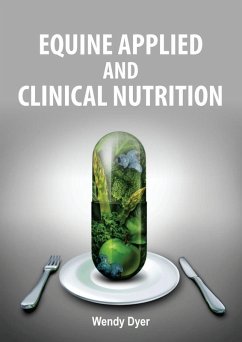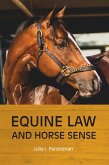Nutritional management of normal healthy horses involves meeting their protein, vitamin, mineral andenergy requirements. The age, activity level, and stage of reproduction all affect those nutrientrequirements and there are commercial feeds designed specifically to address the nutritional needs ofeach lifestyle. There are medical conditions affecting some horses that may be better managed withspecific nutritional manipulations. Signs of deficiency are frequently nonspecific, and diagnosis may becomplicated by deficiencies of several nutrients simultaneously. Nutrients most commonly given inexcess of needs, leading to toxicity or induced deficits of other nutrients, are energy, phosphorus, iron,copper, selenium, and vitamin A. No doubt, medical students and physicians as well as otherparamedical professionals such as medical technologists, nurses and public health personnel shouldhave a basic grounding in the diagnosis, prevention and treatment of human parasitic infection.The aimof the present work has been, and continues to be, to provide such fundamental information of animaldisease special reference to horse.
Dieser Download kann aus rechtlichen Gründen nur mit Rechnungsadresse in A, B, BG, CY, CZ, D, DK, EW, E, FIN, F, GR, HR, H, IRL, I, LT, L, LR, M, NL, PL, P, R, S, SLO, SK ausgeliefert werden.









